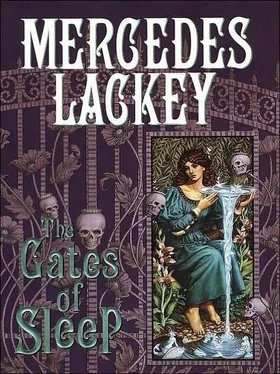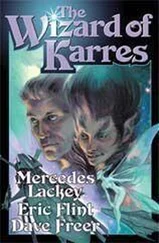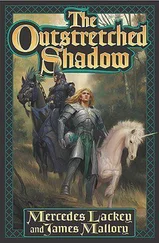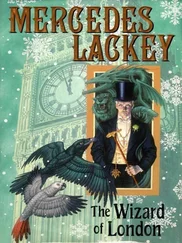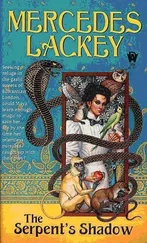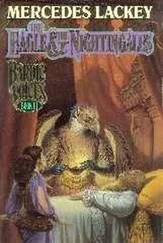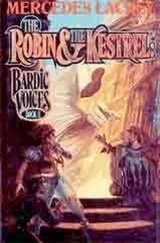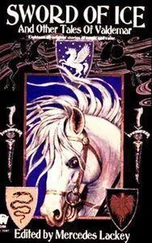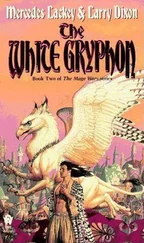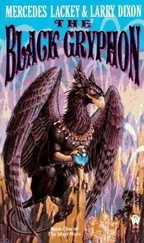When the pony came up alongside the front gate of the parsonage and Marina and her aunt climbed down off the seat, the children surrounded them, voices piping shrill greetings. And very blunt greetings as well—children, especially young ones, not being noted for patience or tact. “Merry Chrissmuss, mum!” vied with “Gie’ us a present, mum?”
For all their pinched faces and threadbare clothing, their lack of familiarity with soap and water, they were remarkably good about not grabbing. They waited for Marina and Margherita to throw back the blanket covering the toys, waited their turns, though they crowded around with pleading in their eyes. Margherita took the little girls, and Marina the boys—Margherita allowed the girls to cluster around her, but the boys were rowdier, and soon began elbowing each other in an effort to get closer to get the choicest goods.
Marina fixed them with a stern glance, which quelled some of the shoving. “You’ve all done this before,” she said sternly. “I shouldn’t have to tell you the rules, now, should I?”
One cheeky little fellow grinned, and piped up. “No, miss. We gotter line up. Littlest first.”
“Well, if you know, why aren’t you doing it?” she retorted—and like magic (actually, not like magic, for order came immediately and without effort on her part) they had formed the prerequisite line. Marina gave the cheeky lad a smile and a broad wink, and reached for a wooden horse with wheels for the youngest in line. She paid most attention, not to the boy to whom she was giving a toy, but to the ones behind him. Eyes would light up when a particularly coveted object appeared, and she tried to match child to toy. All the children got kites except for the very smallest who couldn’t have managed one even by spring; Sebastian had done very well this year in the kite department. That meant that each child got two toys this year, instead of just one, so this was going to be quite a banner year so far as they were concerned. Boys also got a pair of mittens each, fastened to each other by a braided string so that they couldn’t lose one of the pair unless they cut the string. Boys being boys, they usually didn’t bother to put them on, either.
Truly small children, toddlers too young to talk, were usually in the charge of an older sister. It sometimes made her worry to see girls not even ten with a baby bundled in a shawl on their backs, but what could be done? If their mothers weren’t working, they were probably taking care of an infant, and someone had to watch the next-youngest.
In general, these toddlers were too young even for wooden dolls, but based on the number of babies in the previous year, Marina usually had enough soft cloth dollies (for the girls) and lambs (for the boys) to satisfy everyone.
Boys got their toys and ran off shouting with greed and glee; over on Margherita’s side of the pony-cart, Marina’s aunt was doing her own distribution. Besides the dolls and kites, girls each got woolen scarves that they could use as shawls; they seemed to cherish the bright colors and the warmth as much as the playthings.
It didn’t take long to give out the toys, and when there were no more children waiting, there were still some toys left, which was a fine thing. There were probably kiddies too far from the village to get here afoot, especially through the snow; the parson would know who they were, and see to it that they got playthings, too. He wouldn’t be as careful about matching toy to child as Marina and her aunt were, but he was a kindly soul, and he would see that the farthest-flung members of his flock were cared for.
Only when the children were gone did the parson come out and collect the boxes, with a broad smile for both of them. Marina suspected that he took note of the decided lack of secondhand and much-worn articles in their offerings, and respected and appreciated their sensitivity. “My favorite artists!” he exclaimed, hefting a box of kitchen implements, and nodding to the hired man to take up a stack of window-panels. “As ever, thank you. You ladies and our gentlemen are generous to a fault.”
“As ever, it was a pleasure,” Margherita replied, with a cheerful smile. “With Marina all grown up, we would miss the fun of seeing children with new toys if not for this.”
“Happy hearts and warm hands; you do a fine job of tending to both ends of the child,” said parson’s wife, who came trundling up, a bundle of shawls, to take in a box of stockings.
“And we leave their souls in your capable hands,” Marina laughed.
The parson caught sight of the stack of stools, and grinned. “Well, well. Have you managed to persuade John Parkin the Younger to contribute as well?”
“It wasn’t a matter of persuading,” Marina said, laughing, each laugh coming out in a puff of white on the still air. “We told him that if he supplied the materials when Uncle Thomas promised to teach him joinery, he could keep what he made—but if we supplied it, what he made would be going out on Boxing Day!”
“Now,” Margherita smiled. “Don’t make him sound so ungenerous. I think he quite liked the idea. He certainly wasn’t averse to it.”
“And he’ll have a trade when he’s through, which is more than his father has,” the parson’s wife pointed out, in that no-nonsense way that village parson’s wives, accustomed to a lifetime of making do on the meager proceeds of their husband’s livings, often seemed to acquire. “I don’t see where he has anything to complain of!”
When the cart was unloaded, they declined the invitation to tea—the parson’s resources were strained enough as it was—and took their places in the cart again. The pony was pleased to turn around, and made brisk time back to Blackbird Cottage.
But without warning, just as they passed the halfway point between the village and the cottage, something—happened.
Marina gasped, as she reeled back in her seat beneath the unexpected impact of a mental and emotional blow.
It was like nothing she had ever felt before; a sickening plunging of her heart, disorientation, nausea, and an overwhelming feeling of doom that she could not explain.
She clutched suddenly at her aunt’s arm, fought down a surge of panic, and invoked her strongest shields.
To no effect. In fact, if anything, the sensation of dread increased tenfold.
“What’s wrong?” Margherita exclaimed, startled.
“I don’t know—” Marina choked out. “But something is. Something is horribly, horribly wrong—”
The feeling didn’t pass; if anything, it deepened, and she closed her eyes to fight against the awful plummeting feeling in her stomach, the rising panic.
“Hold on—I’ll get you home,” Margherita said, and slapped the reins on the pony’s back, cracking the whip above its ears and startling it into a trot. Marina clung to her aunt as to a rock in a flood, struggling against fear, and completely unable to think past it.
“Oh no,” the phrase, loaded with dismay, that burst from her Aunt’s lips, made her open her eyes again. They were nearly home—they had rounded the corner and the wall and gate of Blackbird Cottage were in sight—But there were strangers there.
A huge black coach drawn by a pair of expensive carriage horses stood before the gate. And the sight of the strange carriage made her throat close with a panic worse than anything she had ever felt before.
In the space of a single hour, Marina had been plunged into a nightmare. The problem was, she was awake.
She sat on the sofa in the once-familiar parlor that had seemed a haven of familiar contentment, between Aunt Margherita and Uncle Thomas.
But in the last hour, every vestige of what she had thought was familiar had been ripped away from her.
Читать дальше
